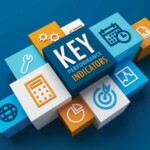Industry Advice ASK MIKE: Which KPIs Will Drive Success in 2024?
with Mike Anderson
This month, we “ASK MIKE” for his thoughts on the most important key performance indicators (KPIs) that shops will need to focus on in 2024. We at Hammer & Dolly hope you find the following exchange useful, and we encourage you to reach out to us if you have a question for Mike on this or any industry-related matter that he can answer in a future issue.
 Hammer & Dolly: We’re almost at the start of another year, which is typically when shops refresh their operations and focus on the next 12 months. What are some of the biggest KPIs that they will need to focus on in 2024?
Hammer & Dolly: We’re almost at the start of another year, which is typically when shops refresh their operations and focus on the next 12 months. What are some of the biggest KPIs that they will need to focus on in 2024?
Mike Anderson: Google reviews is one KPI that people need to focus on as they move into next year. You’re going to start to see Google online reviews take the place of a lot of CSI [Customer Satisfaction Index] surveys. Based on some work I do with Nissan and other OEMs, Google reviews are tied into certified shop locators. Shops also need to continue monitoring their financial KPIs and their car counts. Trends show that frequency is declining even as many shops have backlogs. It’s important to monitor how many cars you’ve been doing this year versus last year or in previous years. Monitoring your capture rate is important as well. Market when you’re busy so that you stay busy.
Shops also need to monitor their customer experience – and the KPIs for that – and not just blow customers out the door because they’re booked up for three weeks or three months right now.
H&D: I tend to believe that people will post a negative review more readily than they’ll post a positive one. How can shops better incentivize customers to leave positive reviews? Are there particular practices that appear to be more successful than others?
MA: If you’re not getting a lot of Google reviews, the first thing you should question is whether you’re really providing an extraordinary experience. People go online to post reviews to do one of two things: complain about you or tell people that you did something amazing. You could say, ‘Well, I’m not getting any complaints through Google.’ That could be true, but are you doing anything extraordinary that would make someone take the time to say, ‘Hey, this place was amazing!’? I have a presentation through Collision Advice called ‘Be Extraordinary’ in which I discuss the difference between customer service and customer experience. Customer service is how we treat the customer, but customer experience is how they felt they were treated.
Obviously, there are companies that make it easier for someone to give you an online review. One is called Podium, and CCC recently rolled out a ‘Book Online’ feature that can be tied into your Google Business listing.
H&D: In the September 2023 “Ask Mike,” we discussed why it’s critical for shops to investigate ways to strengthen soft skills on the front end. What are some specific KPIs for that side of the business?
MA: It’s not so much a KPI, but I really believe in doing employee reviews every year just to make sure that my employees are happy or to see what their performance was over the past year and whether there are areas where they lack experience or need training. I would call that ‘ESI’ or ‘Employee Satisfaction Index.’ It’s about making sure that your team is happy. Your ESI ultimately dictates your CSI. If your employees love you and love working for your organization, they’re going to be your biggest fans and go the extra mile for your customers. The way to determine your ESI is to either have a third party or an outside company survey your employees or do employee reviews where you can spend some one-on-one time with them.
H&D: Obviously, there are standard and very important KPIs that any collision repair business will need to focus on moving forward, but are there any areas where shops tend to spend too much time on at the expense of other key areas of their business?
MA: Sometimes, people step over $100 bills to pick up pennies. They get focused on some of the wrong things. I 100 percent believe that you should focus on and monitor paint and materials profit, but what you spend on materials is less than five percent of your sales – parts is 40 to 43 percent of your sales. Some people will grind away on their paint and materials profitability but have $25,000 in outstanding parts credits that haven’t been followed up on. A lot of shops neglect the parts area. People will say they don’t want to hire a parts person because they’re too heavy on admin, but I go to their shops and see their body technicians checking in or mirror matching their parts. That body technician could be producing revenue and gross profit for those shops if they had somebody to check in those parts. Sometimes, people run their offices too lean – they think they already have too many people and are already paying too much. But when you do that, the technicians are often the ones who bear the consequences of having to do too much administrative work. That’s counterproductive.
Want more? Check out the December 2023 issue of Hammer & Dolly!
